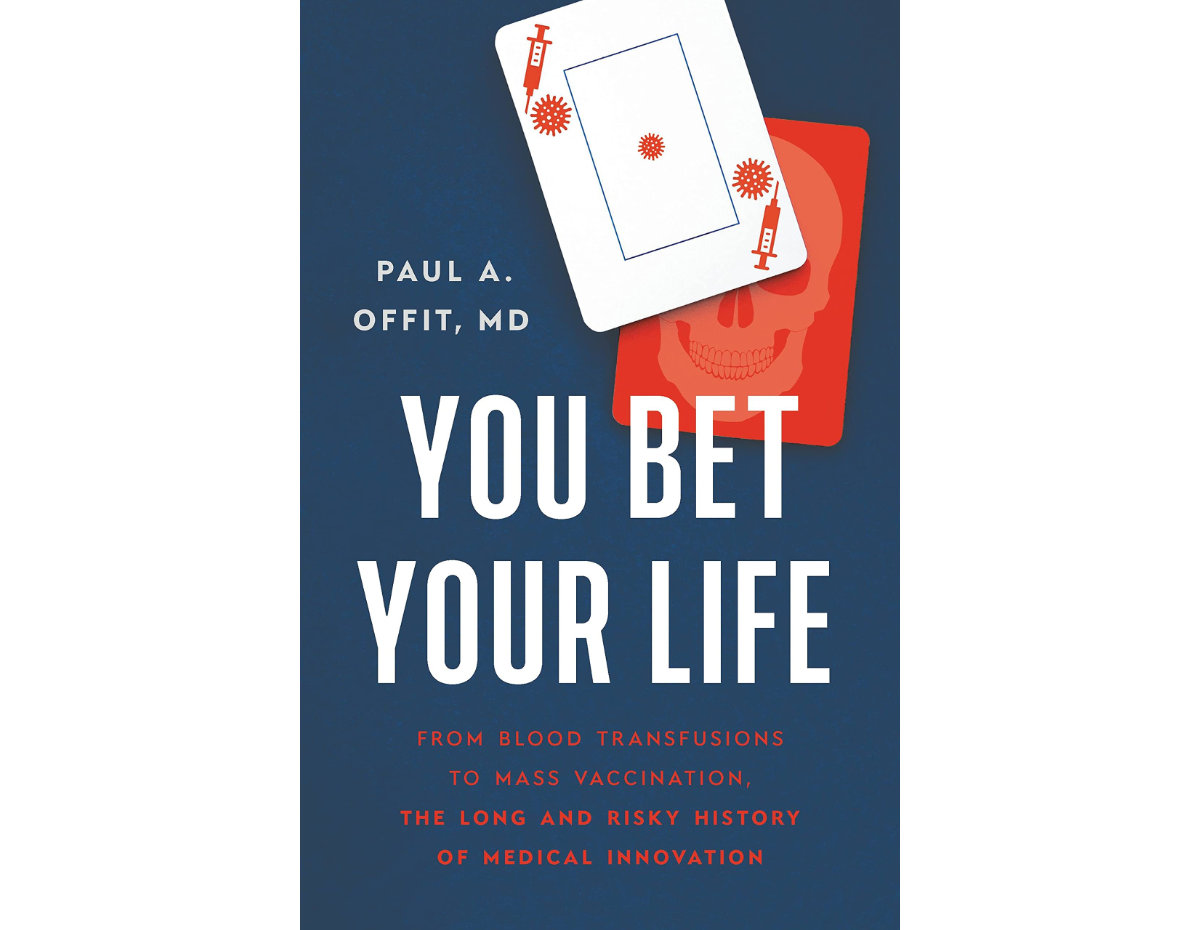There are no risk-free choices: interview with Paul Offit

I recently caught an interview with Paul Offit, chief of the Division of Infectious Diseases and the director of the Vaccine Education Center at the Children’s Hospital of Philadelphia and a professor of vaccinology and pediatrics at the University of Pennsylvania School of Medicine. The interview, originally broadcast on KERA in Dallas, was moderated by Krys Boyd. Part of the purpose of the interview, obviously, was to sell his latest book, You Bet Your Life: From Blood Transfusions to Mass Vaccination, the Long and Risky History of Medical Innovation.
To get immediately to the point, Dr. Offit argues convincingly that there are no risk-free choices. If you choose not to be vaccinated, then you are choosing between the risk of contracting a deadly widespread disease (and, I might add, of infecting others) and the risk of suffering from a rare side effect. Why do people choose the common disease over the rare side effect? One reason, Dr. Offit claims, is that a sin of commission may be seen as a greater risk than a sin of omission, even if statistically it is not. Thus, you may feel guilt over a sin of commission but not over a sin of omission. Further, and equally regrettably, people see themselves and their children as invulnerable – “I am strong and healthy; it won’t happen to me” – and Dr. Offit attributes this kind of denialism to the unfortunate fact that the emotional centers evolved early, before what I shall call the thinking centers. He did not, according to my notes, discuss the political implications of refusing vaccination.
How safe are the Covid vaccines?
Vaccine trials typically involve 20-30,000 individuals. These individuals are observed carefully for 2 months, because historically the side effects occur within 2 months. The real question is the duration of the efficacy, and that requires a longer study.
Does he recommend the vaccine for everyone who is authorized to receive it? Yes, but only because we are in a pandemic, so the benefit of vaccination far outweighs the risk. If we were not in a pandemic, then he would not advise releasing the vaccine before it was fully approved by the FDA.
What are the risks of waiting for full approval? Consider the polio vaccine. The vaccine was shown to be safe, potent, and effective. Yet during the trial 16 people died and 36 were paralyzed, of whom 34 were in the placebo group. Another way of looking at it, approximately 60 people were sacrificed in order to ensure the safety of the vaccine. Absent an epidemic like the polio epidemic, many fewer people would have suffered an adverse impact. We could, I presume, anticipate similar statistics if we wait for a Covid vaccine to be fully approved. You may hear additional anecdotes, including a discussion of the safety of the blood supply, in the full interview.
Dr. Offit also noted, and I cannot disagree, that the FDA failed us when (the arm of the FDA commisioner having been sufficiently twisted) it bowed to political pressure and approved hydroxychloroquine and convalescent plasma, even though they have been shown to be useless. In those cases, politics trumped science. We need the FDA, and I can only hope that its reputation has not been too badly damaged.
As an aside, Dr. Offit considers the development of the Covid vaccines to be the greatest single medical accomplishment he has seen during his career: two safe, effective vaccines were developed a mere 11 months after the virus had been sequenced. Regarding safety, he stresses again that there are no risk-free choices, and in a fit of levity points out that even driving to the office to get the vaccine is not wholly safe.
